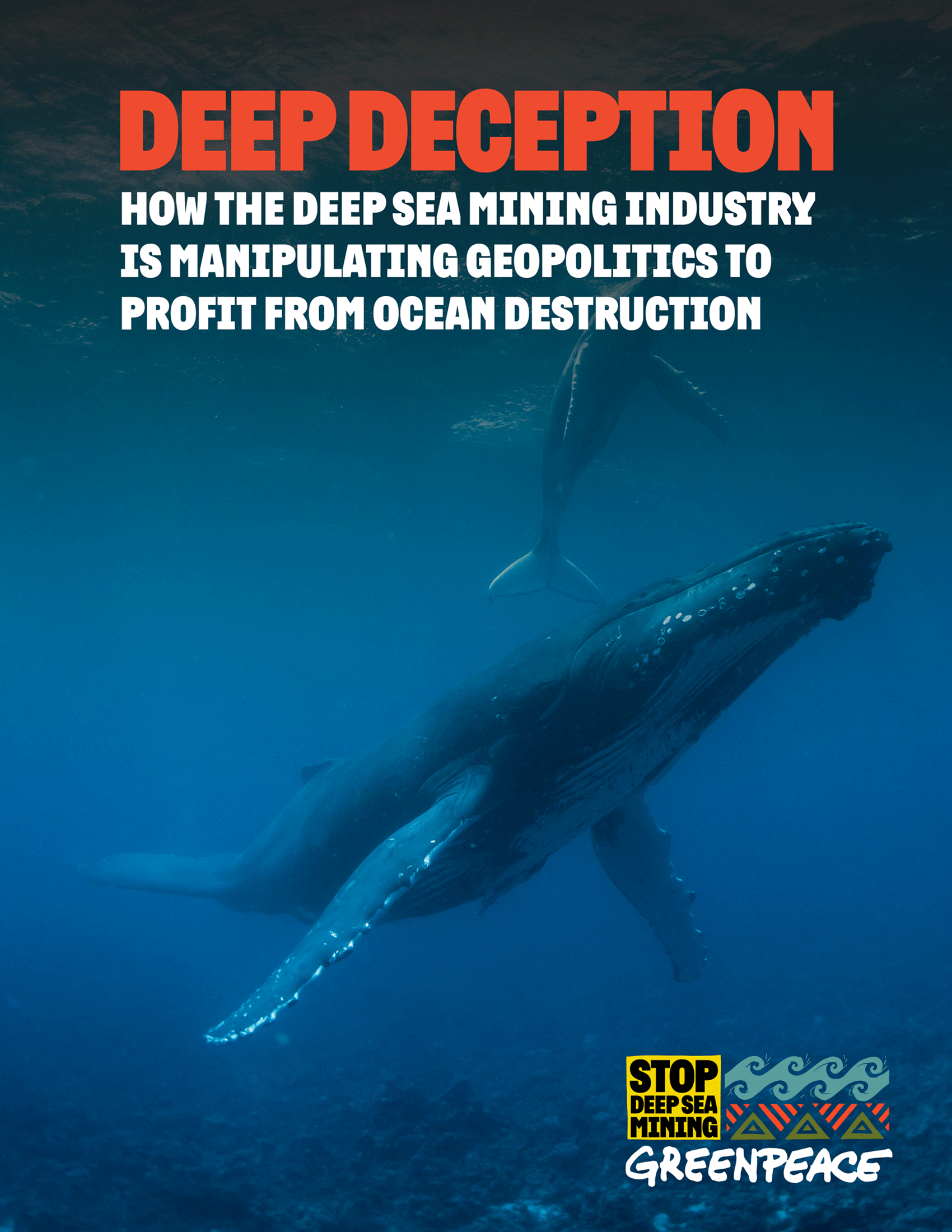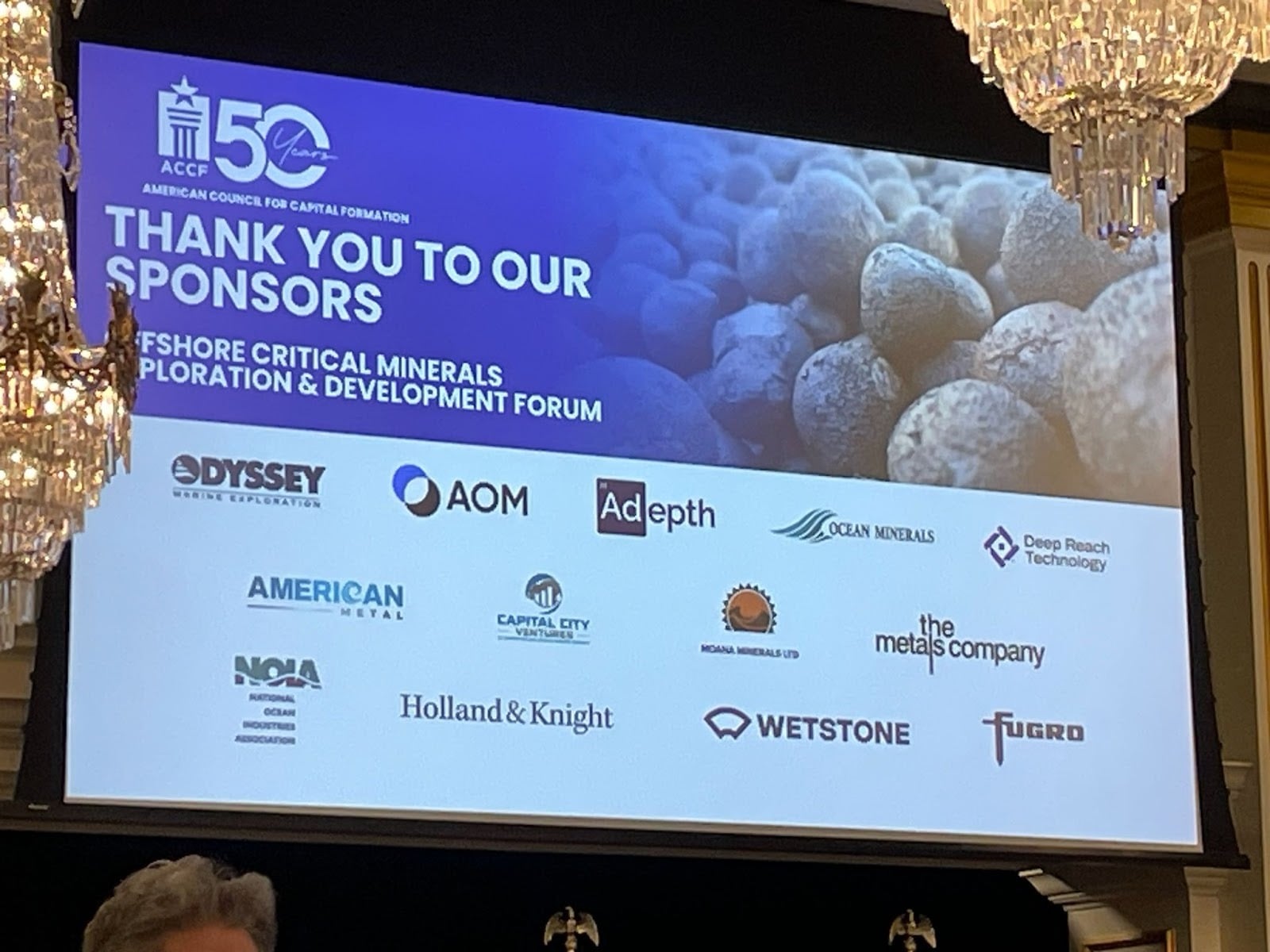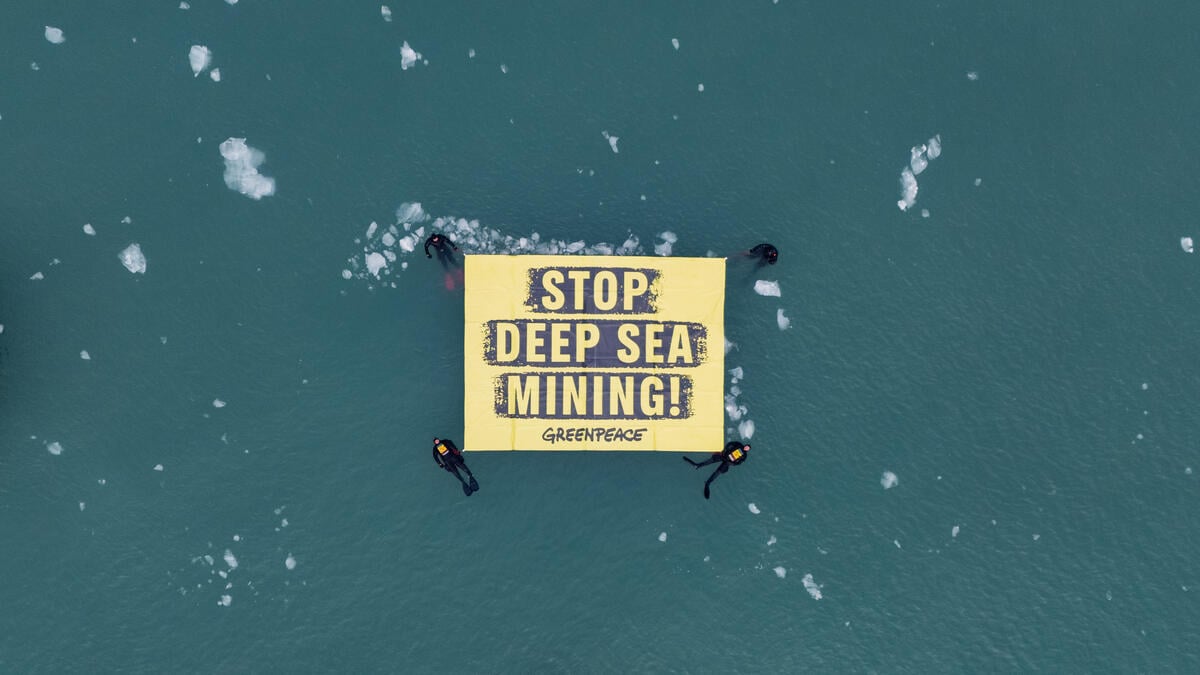
Read the Report: Download “Deep Deception” How the Deep Sea Mining Industry is Manipulating Geopolitics to Profit from Ocean Destruction
Background
On 27 March 2025, The Metals Company (TMC) set off a geopolitical alarm. Facing financial pressure and stalled progress at the International Seabed Authority (ISA), the deep sea mining company announced it would seek U.S.-issued permits under the outdated 1980 Deep Seabed Hard Mineral Resources Act to mine the deep sea under an American authorization—brazenly bypassing international consensus. Just weeks later, the Trump administration issued an Executive Order signaling its readiness to unilaterally authorize deep sea mining in both U.S. and international waters, the latter in contradiction to the United Nations Convention on the Law of the Sea (UNCLOS), an international treaty to which the U.S. is one of only a handful of nations that is not party. Days after the Executive Order, The Metals Company applied to the United States, for both licenses for exploration and for permits for commercial mining.
This report documents an intentional narrative shift on the part of the deep sea mining industry, from the greenwashing notion of a climate change solution that branded their companies for years, to one centered around U.S. national security and defense.
In uncertain times, this documented marketing and lobbying strategy – pitting global powers against one another – is a dangerous and reckless game that risks the international seabed, global stability, and the efforts of multilateralism to uphold the concept of Common Heritage of Humankind – the global consensus that the international seabed must benefit all humanity, and must be done for peaceful purposes.
UNCLOS was founded in part to prevent the global powers from entering into a Cold War gold rush to the bottom of the sea, risking both ecological destruction and escalated geopolitical tensions. Decades later, corporate interests have brought us right back to the same volatile touch point. To make matters worse, there is no real need for the world to be here. The report reveals that there is no scarcity of the four primary minerals of interest from polymetallic nodules for the U.S. defense sector, and they were not looking to the seabed as a source for them. The reverse was the case, the deep sea mining sector came to them. This new corporate narrative of deep sea mining corporates is one based in greed, not actual need.
Highlights
- Greenpeace US investigation reveals growing evidence linking the deep sea mining industry with military contractors, pro-defense representatives, and venture capitalists. From Norway to the United States, corporations hoping to launch a new deep sea mining industry are opportunistically trying to link underwater mineral resources to national security in order to attract new investment and political support.
- As Sandor Mulsow, former Head Office of Environmental Management and Mineral Resources at the ISA points out, this risks an “exploration war in order to secure such resources in the future.” This view is shared by Randy Manner, retired major general in the U.S. army, who sees “money and business” as the only real motivation for deep sea mining.
- “National security” is overtaking “energy transition” as the narrative du jour for deep sea tycoons. In their search for political support and funding, deep sea mining hopefuls are getting closer to influential military circles, particularly in the United States.
- The Metals Company (TMC), the Vancouver-based deep sea mining start up, has largely pivoted from their energy transition narrative to hyping up the risks of the U.S. depending on Chinese-dominated supplies of critical metals and playing up national security concerns. Having lobbied for years to accelerate the adoption of a Mining Code by the ISA, TMC’s CEO Gerard Barron has now garnered the support of Republican defense hawks and military veterans in the U.S., and recently boasted about visiting the White House.
- Traditional defense contractors are retreating from deep sea activities, but keeping their options open. Lockheed Martin has kept U.S. issued exploration licenses in the Pacific’s Clarion-Clipperton Zone (CCZ) for more than forty years, outside of any international legal framework, but never taken active steps to start exploitation. In the meantime, Norwegian state-owned defense operator Kongsberg had taken stakes in Loke Marine Minerals, which held UK-sponsored exploration licenses in the CCZ, and was also an investor in TMC, before it recently declared bankruptcy in yet another deep sea mining cautionary tale.
- Our investigation finds that deep sea mining is a supply-driven venture, not a response to genuine market demand. Despite decades of promotion, the industry has failed to prove its relevance to any critical supply chain—civilian or military. Claims that polymetallic nodules are essential to defense applications appear to be a marketing narrative, not a procurement reality. Defense contractors are unlikely to rely on an unproven, high-cost extraction model when more stable, terrestrial sources or recycling pathways exist. In the absence of compelling technical or material need, the industry’s prospects hinge almost entirely on political endorsement—not market viability.



